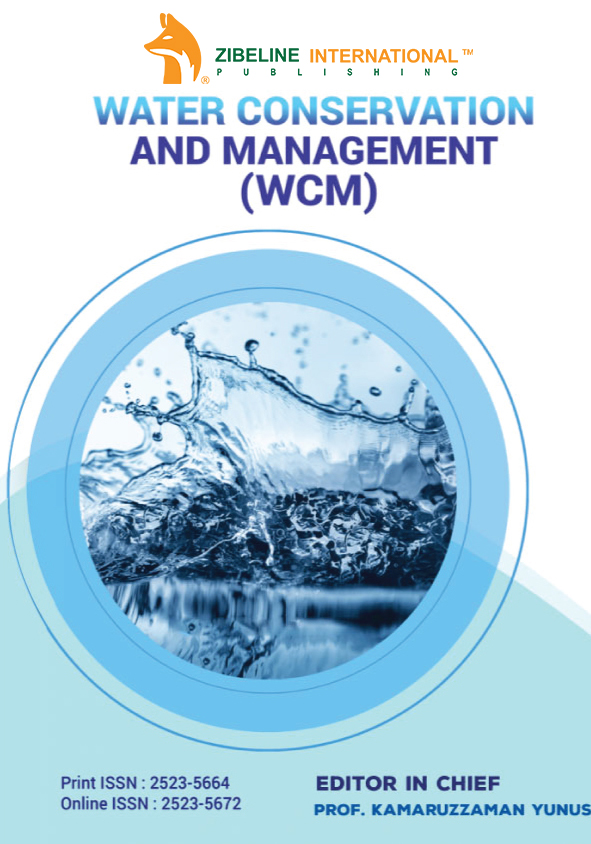EFFECTS OF USING TREATED WASTEWATER FOR IRRIGATION ON HEAVY METAL BUILDUP IN PLANTS AND SOIL AND ITS INFLUENCE ON SOIL SALINITY
Journal: Water Conservation and Management (WCM)
Author: Husam Al-Hamaiedh
Print ISSN : 2523-5664
Online ISSN : 2523-5672
This is an open access article distributed under the Creative Commons Attribution License CC BY 4.0, which permits unrestricted use, distribution, and reproduction in any medium, provided the original work is properly cited
Doi: 10.26480/wcm.03.2025.533.540
ABSTRACT
 Jordan is experiencing significant water scarcity, worsened by limited renewable resources, a growing population, and climate change. Reusing treated wastewater (TWW) for irrigation has become a promising solution to combat water shortages. This study examines the effects of TWW from three wastewater treatment plants (WWTPs)—Za’atri, Al-Salt, and As-Samra—on soil salinity, heavy metal accumulation, and plant uptake. Analysis of TWW samples revealed high levels of heavy metals such as cadmium (Cd), lead (Pb), and mercury (Hg), which exceed the permissible limits established by WHO. Soil irrigated with TWW showed increased salinity and heavy metal concentrations compared to soil irrigated with rainwater, especially at deeper layers. Some metals, including cadmium and selenium, were found to be bioavailable, raising concerns about environmental and health impacts. While TWW presents an alternative source for irrigation, it is crucial to implement careful monitoring and treatment adjustments to reduce the risks linked to heavy metal contamination and soil degradation.
Jordan is experiencing significant water scarcity, worsened by limited renewable resources, a growing population, and climate change. Reusing treated wastewater (TWW) for irrigation has become a promising solution to combat water shortages. This study examines the effects of TWW from three wastewater treatment plants (WWTPs)—Za’atri, Al-Salt, and As-Samra—on soil salinity, heavy metal accumulation, and plant uptake. Analysis of TWW samples revealed high levels of heavy metals such as cadmium (Cd), lead (Pb), and mercury (Hg), which exceed the permissible limits established by WHO. Soil irrigated with TWW showed increased salinity and heavy metal concentrations compared to soil irrigated with rainwater, especially at deeper layers. Some metals, including cadmium and selenium, were found to be bioavailable, raising concerns about environmental and health impacts. While TWW presents an alternative source for irrigation, it is crucial to implement careful monitoring and treatment adjustments to reduce the risks linked to heavy metal contamination and soil degradation.
| Pages | 533-540 |
| Year | 2025 |
| Issue | 3 |
| Volume | 9 |

